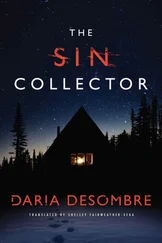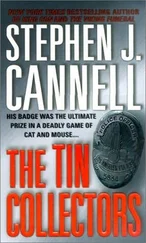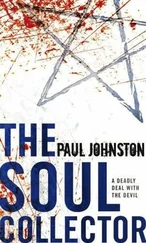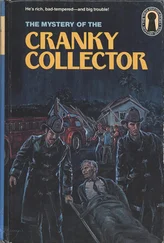Ash fell. A fine gray powder covered everything. Ash coated burned-out cars and traffic lights. Ash infiltrated apartments, graying books and dishes, smothering house plants, clouding windowsills. Ash smogged streets and soiled papers, loose and lost, invoices and receipts, canceled checks, business cards, appointment books, memoranda unremembered. Black dust, black ink, black banner headlines in The New York Times . Black articles about firefighters, rescue workers, schoolchildren, orphans. Black bordered ads from ExxonMobil, Allstate, Prudential, Home Depot, OppenheimerFunds, Fleet, Lufthansa— to our friends in America , AOL Time Warner, Merrill Lynch. Our hearts go out to everyone who’s been touched by the tragic events … our thoughts and prayers … our gratitude for the tireless efforts of the emergency and rescue workers . Condolences from Israel and Egypt, the city of Berlin, the Iranian-American community— profoundly saddened , the Red Cross, the Ministries of New York— we’re here to pray for you .
Museums opened free of charge. Oases of deep color: Rothkos, Rembrandts, Egyptian tombs, Roman glass, iridescent bottles outlasting their perfume. Amulets, silk gowns, and Grecian urns. Those young girls with parted lips, those haystacks, those stone angels taking flight, those paintings of fruit and full-blown flowers.
Classical-music stations broadcast elegies, and listeners stopped what they were doing to hear Fauré’s Requiem or Barber’s Adagio for Strings . To breathe again.
Churches opened doors for candle-lighting, singing, sermons, vigils. In the nave of the National Cathedral, President Bush said, “We are here in the middle hour of our grief …” and he told the American people to keep on living, to travel, to attend the theater, to go out and buy. Alas, buying did not appeal. Only American flags sold out. Great flags hung from walls and firehouses. Smaller versions adorned shop windows and front doors. Drivers clipped miniature flags to car antennae where they fluttered in the breeze.
A flag was tangible. Its stars and stripes were real, unlike the dot-com bombs of yesterday. Who remembered those? The upstarts, overhyped and overfunded. When the Nasdaq reopened on September 17, even Cisco hovered at twelve dollars a share. Vaporizing into usefulness, online shopping, e-mail, and instant news, the Internet lost its mystique, and suddenly it was everywhere and nowhere, like the air. A flag had value. A leaf blower made sense. Unprofitable companies with huge growth and huge debt did not. Few bought Veritech at two. Fewer wanted ISIS, even at eighty cents.
None of that mattered to Emily. For the first time since Veritech’s IPO, she did not check her company’s share price. She didn’t look; she didn’t care. When Alex called, or Bruno, or Milton, or Laura, she let Jess answer the phone. With each ring, she expected Jonathan. She couldn’t talk to other people.
When Dave invited her to Jonathan’s memorial service, Emily told Jess to thank him and say no.
“Maybe you should think about it,” Jess said when she put down the phone.
“No, I don’t want to think about it.”
“You don’t have to decide right away. You don’t have to say anything yet.”
“Okay, don’t say anything.”
For days she did nothing. She didn’t even open her computer. She sat at one end of the couch with her legs tucked under her, and then sometimes, for a change of scene, she moved to the other end.
Jess reminded Emily to get dressed in the morning. “You can’t wear pajamas in the daytime.”
“Why not?”
“Your circadian rhythms will get out of whack. I read an article about it. You shouldn’t work in your bedroom, you shouldn’t wear pajamas in the daytime, and you shouldn’t exercise or eat at night, or work too long in the dark. So put these on.” Jess pulled out a shirtdress and a sweater. Obediently, Emily changed into clean clothes.
Laura came bearing Emily’s dry cleaning along with a loaf of homemade pumpkin bread. The condo association left a giant fruit basket wrapped in cellophane. Emily’s cleaning service, Maid for You, sent her a condolence card and refused to charge her for the week of September 11. Orchids proliferated on the coffee table. She had been in all the papers. He leaves his fiancée, Veritech cofounder Emily Bach , and so everybody knew.
Jess shopped and prepared meals: oatmeal, or brown rice with broccoli, or avocado-and-sprout sandwiches on cracked-wheat bread. Like an old married couple, the sisters completed the New York Times crossword puzzle each morning. They played Scrabble, backgammon, cribbage, even checkers, and then sometimes they didn’t play anything at all. Emily did nothing, and Jess was the perfect companion, fielding phone calls, nibbling cashews, scribbling on dog-eared papers in red pen.
Waking up was hardest, because each day Emily had to teach herself that Jonathan was gone, and the life she might have had with him was gone, their conversations and their fights. That was the worst part. Her struggle against Jonathan was over, all their arguments and their competing claims for time. The person she had been with him was gone, and the man she’d hoped he would become was lost, and she was left with the words Jonathan had said, and the things he’d actually done. Her ideas for him, and her future with him would never come to pass. She hated him for that, for rending her world, ruining what might have been.
After waking, she was careful to stay still. No sudden movements or long conversations. No newspapers, no radio. Brimful, she was afraid of tipping.
She slept poorly, and once, she woke crying with bad dreams. Then Jess lay down at the foot of the bed.
“I’ll stay here,” Jess said.
“Are you comfortable?” Emily asked anxiously.
“Mm-hmm.”
“Are you going to sleep here all night?”
“Yes.”
“Jess?” said Emily.
“Stop waking me up.”
“What about the Tree Savers?”
“Don’t worry about them.”
“What do you mean?”
“They’re fine without me.”
Emily took this in, and then asked delicately, tentatively, “Are you done with them?”
“Done.”
“Oh, good,” Emily said, but with sleepless, worried interest, she pressed, “What about Yorick’s? Isn’t George wondering where you went?”
Jess hesitated. “He knows.”
“Did you tell him when you’re coming back?”
“I’m not coming back.”
“You quit? You just left?”
“Well …,” said Jess, “I had to stop.”
Emily roused herself a little, as though she wanted to see her sister’s face, and Jess was glad that it was dark. “What do you mean?”
Don’t tell her now, Jess reminded herself. She mustn’t say anything now. “It’s not important.”
“What happened?”
“Nothing. Nothing happened.” Jess meant nothing happened compared to what you’re going through. “I got a little bit … involved with him.”
“Jessie!” Emily sat up in bed.
Jess couldn’t help laughing.
“It’s not funny!”
“I know,” said Jess, wiping her eyes. “But it’s so good to hear you sounding like yourself.”
“Did you … did you really …?”
“Well …”
“You slept with him? Jess, how could you?”
Jess confessed, “Actually, it wasn’t all that difficult.”
“I can’t believe you!”
“Please.”
“You know that he’s too old.”
Jess said nothing.
“It would be totally—”
Jess cut her off. “I told him that we can’t see each other. I explained to him that I’m going to be with you.”
Читать дальше












